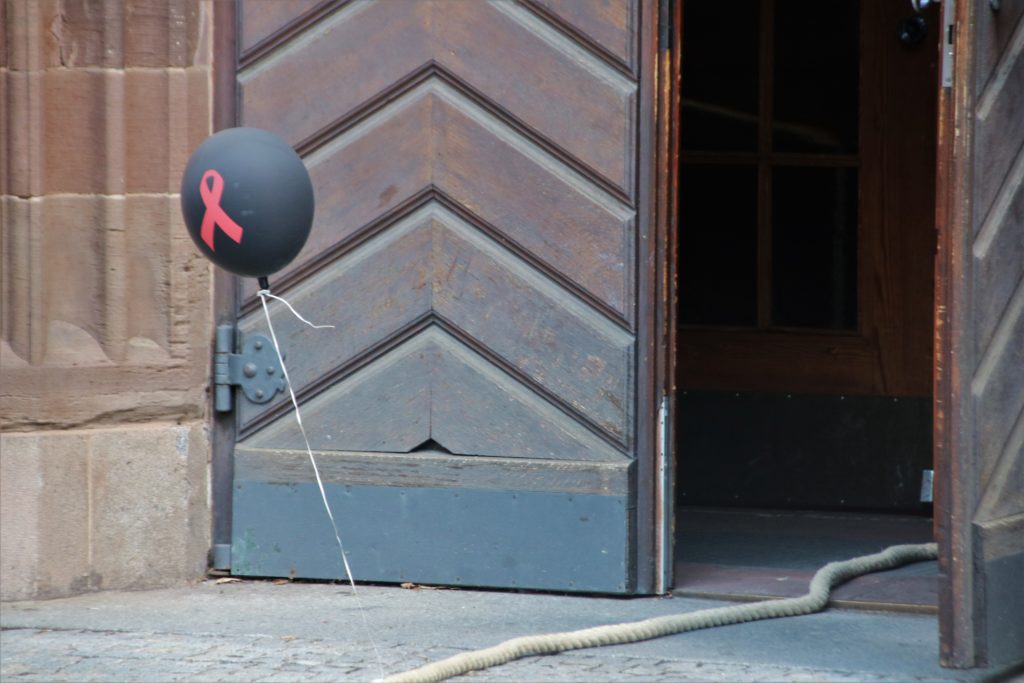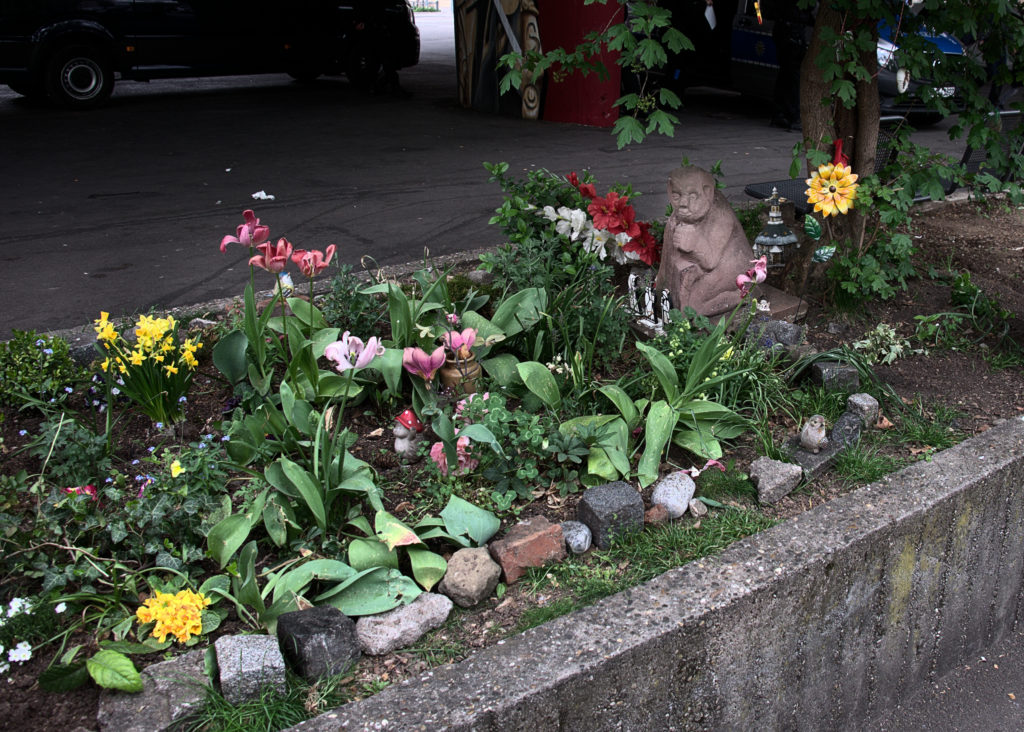by Agapezz
For me, it used to be that consuming was more important than eating: I needed it to fall asleep and wake up, to function. To keep from going crazy, I hold on to the high, even if it means ignoring any morality I really wanted to hold on to. Consumption lulls my traumas to sleep and covers them so they don’t wake up. I would like to deal with my negative experiences, but there is no safe framework for me to do so. What is addiction anyway? Everyone defines that for themselves. Let me do what I want with my body. That’s the view of the addicted part of myself.
Up until two years ago, I didn’t even realise that I was addicted at all, although very bad things happened to me. But if you live on the street and the people you hang out with also numb themselves and that’s not a problem for anyone, consumption becomes the only coping mechanism you have. Because no one here was allowed to learn any other way to deal with emotions, consumption becomes “normal” and nobody else wants to, or is able to, help you anyway. How was I supposed to reflect back then that my mind and body’s survival mechanism was death? Today I see my addiction as an illness that I can’t help and from which I had no way out at the time. People can’t blame you for that, can they?
What hurts on the road—and what helps
People do resent your addiction; they devalue you and avoid you, thereby also suppressing their own addiction patterns and the reality of our complex world. The best example of an addiction pattern that is often suppressed in mainstream society: shopping. If you have money, you can “buy yourself happy”—but not for long. Because as with any intoxication, you will need something again soon. Because this type of consumption benefits the economy, nobody will sound the alarm anytime soon. Speaking of awareness, everyday alcoholism is known to be viewed far more liberally than being a junkie. Addiction runs through society as a whole, but “the ones down there” often get hit the hardest—in terms of substance and in terms of conviction.
Back then, when I was begging, I often heard passers-by say: “But don’t use any of it to drink, smoke weed or use anything else that gets you high!” This attitude—”I’d rather buy people something to eat so that they don’t get anything to consume”—I could understand as a child, but when I had to live out of my own hands, I found it to be overbearing. I can still understand the thoughts behind such reasoning, but if someone who has never had to live on the streets themselves, they shouldn’t incapacitate me. A life of violence and chaos is not helped by simple advice. What helped me was finally a room where I could be safe, regular meals and a warm bed. A social circle that does not consume permanently. And the best of all things: a warm shower.
With luck I didn’t die from my addiction
When half of the needs pyramid is covered and you have a reasonably solid foundation, then as an addict you can try to enter into a dialogue with yourself and your soul. Ideally, of course, with a competent specialist. Only then can you find insight and capacity for change. Of course, there are also people who don’t want to stop their consumption or only want to try half-heartedly because they do recognize their problem, so they use just enough to maintain. But even then, the inner child cries out, a child with whom we unfortunately cannot talk well when we have consumed. Maybe they don’t want to bury their “good old friend” the substance after all? You’ve experienced a lot together. It’s difficult to let go of something you’ve known for a long time. Even if it destroys yourself and everything around you.
Force of habit? Not just this. It is a well-known fact that people are more likely to become addicted if they did not grow up in a safe social environment, experienced a lot of deprivation as a child and who have already been exposed to consumption, also in the form of cigarettes, gambling, sex. If, for example, generational trauma—in my case, a war—cannot be actively processed because the circumstances do not allow it, well, then I do what my father did:, drink red wine until the next fight and then wake up in the drunk cell. I’m glad and grateful that I didn’t die from drugs. I am grateful for my present privileges and that all my basic needs are met, all because of a bad accident that was my ticket off the road. But not everyone is lucky in misfortune.
Take care of others and save lives
As a being who is viewed as a female on the street, I have probably seen and experienced the ugliest side of people. I could have used civil courage damn well. Recently I saw two people lying on their backs in the middle of Königstrasse in Stuttgart in the blazing sun. They didn’t move and, among the many people walking by, nobody cared about the two. I was of two minds: If I call the ambulance now, the police will come to accompany it. And I don’t know if I’ll cause them both even more trouble. I couldn’t go there personally and try to interact with them because I was afraid that it would trigger my addiction or my trauma. After about 25 minutes I called the ambulance. During that time, many people walked past those people lying on the ground as if nothing had happened, in broad daylight. The two could have been dead and nobody would have noticed; no one was interested in how they were doing. The ambulance took another 15 minutes. When it came, people stopped—to stare. With anger in my heart, I walked away.
One sentence was in the air: “It’s not my problem if the bums have drunk too much again!” It is our problem as a society. But if we were all trying to take better care of each other, we would not just be dealing with injustices alone. Many lives could be saved.
Translated from German by Lisa Luginbuhl
Courtesy of Trott-war / International Network of Street Papers



